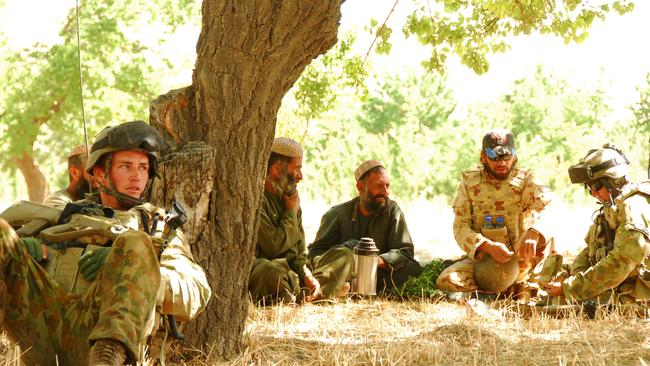Afghan interpreters at risk, says Andrew Hastie
Andrew Hastie says he fears for the safety of Afghan interpreters who worked for the ADF and are yet to be relocated to Australia.

Assistant Defence Minister and Afghanistan veteran Andrew Hastie says he fears for the safety of Afghan interpreters who worked for the ADF and are yet to be relocated to Australia.
As the Taliban prepares to unleash a wave of revenge attacks when allied forces withdraw from Afghanistan in September, the former Special Air Service captain said the government was working on getting its remaining translators out of the country.
“Afghanistan is a really tough place,” he said. “As we have seen there are a lot of attacks still going on, and yes, of course I am concerned about those people who have helped the Australian government do its work there.”
Mr Hastie said he’d worked closely with Afghan interpreters during his deployment to the country, one of whom had since moved to his West Australian electorate.
“He is working in a small business and I have formed a great friendship with him,” he said.
The Department of Home Affairs has said it is urgently processing visa applications for interpreters and locally engaged staff who worked at Australia’s now-closed Kabul embassy.
In a response to a Freedom of Information request by the Nine Network, the department said it had 108 yet-to-be approved applications from Afghans under the Locally Engaged Employee humanitarian visa program.
It said the LEE visa processing time currently stood at 48 weeks between lodgement and visas being granted.
Scott Morrison has vowed to “do the right thing” for the locally engaged Afghans now facing death at the hands of the Taliban.
The Department of Home Affairs said it had processed more than 90 LEE humanitarian visas for Australia’s Afghan employees and their families since May 1.
LEE applicants were being “afforded the highest processing priority within the humanitarian program”, but applicants must still meet rigorous health, character and national security requirements, Home Affairs said.

The Prime Minister last week said he couldn’t go into detail on the efforts to relocate locally engaged Afghans because he didn’t want to put anyone in danger.
But he said Australia had “done it before and we will work through this steadily”.
Australia abruptly closed its embassy in Afghanistan last month, escalating the concern among locally engaged Afghans that they could be left to the Taliban, who have warned those who worked for “the enemy” face death.
One former translator was sent into hiding with his young family after a letter stamped and signed by the Taliban was taped to his front gate, according to a report by the ABC.
Another former interpreter, “Faheem”, who worked for the ADF in Oruzgan and Helmand provinces from 2014 to 2019, told The Australian he received approval last year to come to Australia with his wife and four children, but the process had ground to a halt.




To join the conversation, please log in. Don't have an account? Register
Join the conversation, you are commenting as Logout